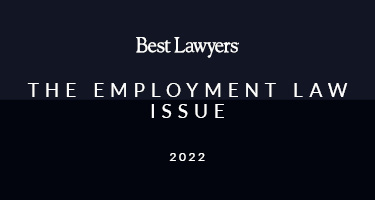In a recent case, Bowles v. Apro International Inc., the employer was able to obtain a dismissal of the claim because the claimant was unable to set forth sufficient allegations to state a plausible claim for relief.
BACKGROUND OF BOWLES V. APRO INTERNATIONAL INC.
Claimant, Mariah Bowles, was employed by APRO International in Afghanistan as a Medical Supply Specialist. She was assigned to work in a medical warehouse next to the flight line for medical evacuation of helicopters that delivered wounded soldiers to a hospital. After witnessing the deaths of wounded soldiers, Claimant alleged that she suffered from PTSD that prevented her from returning to work in a warzone. She made a claim against APRO and its insurance carrier under the Longshore and Harbor Workers’ Compensation Act (LHWCA), as extended by the Defense Base Act (DBA).
As part of the investigation into the claim, APRO’s carrier requested that Bowles sign a HIPAA release. APRO’s carrier used the release to obtain Bowles’ medical records, which they then released to some of APRO’s employees.
CLAIMANT ALLEGES VIOLATION OF HIPAA RELEASE
Bowles eventually settled her DBA claim against APRO and its carrier, but alleged that the HIPAA release she provided to the carrier did not authorize the carrier to provide her confidential medical information to APRO or any of its employees. Bowles claimed that she suffered emotional distress, anguish, and anxiety after learning that the carrier and employer released her mental health records. As a result, Bowles brought suit against APRO and its carrier on several different negligence theories.
THE LAWSUIT
First, Bowles claimed that APRO and its carrier were negligent per se, based on the defendants’ violation of HIPAA. The court determined that HIPAA only applies to a “covered entity” or its “business associate,” and that covered entities are health care providers and clearinghouses. Thus, the court found that APRO and its carrier could not have violated HIPAA.
Bowles next claimed that she had a remedy due to invasion of privacy. The court found that a cause of action for invasion of privacy required that defendants obtain Bowles’ records through unreasonable means. Because the defendants obtained Bowles’ records through her prosecution of her Defense Base Act claim, Bowles had no action for invasion of privacy.
Then, Bowles made a claim for intentional infliction of emotional distress. Finding that defendants’ actions were not extreme or outrageous, the court dismissed this charge.
Finally, Bowles alleged that APRO’s carrier owed her a fiduciary duty to keep her mental health information confidential. The court found that Bowles did not set forth facts to establish that her employer’s insurance carrier owed her any fiduciary duty, so that count was also dismissed.
CLAIM DISMISSED
APRO were able to obtain a dismissal of the claim because Bowles was unable to set forth sufficient allegations to state a plausible claim for relief.
Bowles v. Apro International Inc., No. 4:18-cv-1869, 2019 U.S. Dist. Lexis 117071 (E.D. Mo. July 15, 2019)



























